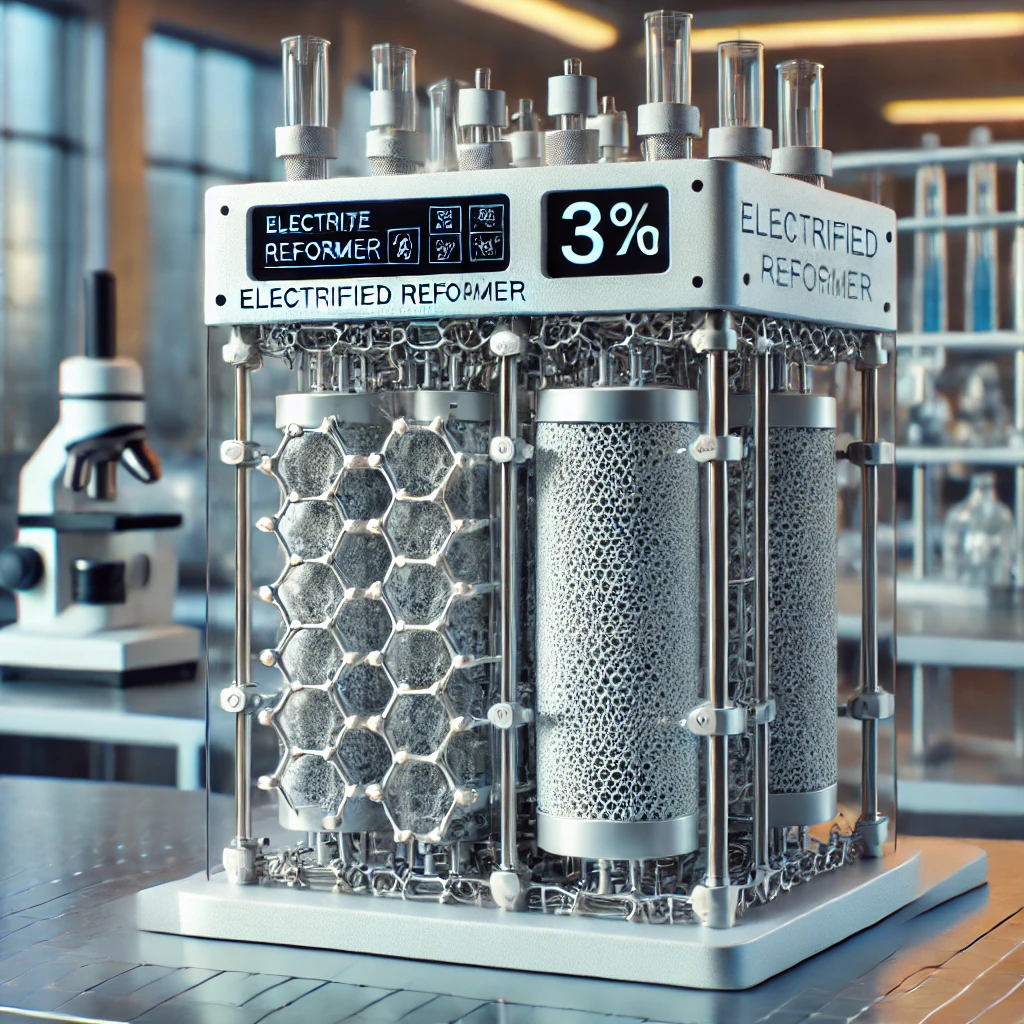Industries like chemical manufacturing, fertiliser production and hydrogen generation could significantly cut emissions, improve efficiency and lower costs using a newly developed electrified reactor as a groundbreaking alternative to high-temperature industrial processes.
Monash engineers have developed an electrified reactor that offers a sustainable solution for the dry reforming of methane (DRM), a high-temperature process used to make certain chemicals including methanol, ammonia and synthetic fuels. These industries typically rely on fossil fuels to power reactions that reach temperatures above 900°C, contributing significantly to global carbon emissions.
According to a paper published in Applied Catalysis B: Environment and Energy, the electrified reactor is a significant improvement over traditional methods, which rely on fossil fuel combustion to achieve high temperatures. Powered by renewable energy, the study found the reactor could cut carbon emissions by 60 per cent while boosting efficiency.
Lead researcher Professor Akshat Tanksale, Deputy Director of ARC Research Hub for Carbon Utilisation and Recycling and Carbon Theme Leader at the Woodside Monash Energy Partnership, said innovations like the electrified reactor were crucial as industries look to decarbonise without sacrificing productivity or profitability.
“Instead of relying on fossil fuel combustion, industries can now power these reactions in a sustainable way, cutting both operational costs and emissions,” Professor Tanksale said.
“Our electrified reactor shows remarkable efficiency, converting 96 per cent of methane into usable energy, surpassing the 75 per cent conversion rate of traditional methods."
"The compact, modular nature of this reactor allows for easy integration into existing infrastructure, enabling rapid deployment and scaling at industrial sites without major disruptions."
At the heart of the breakthrough is a bespoke structured reactor that uses 3D-printed monoliths designed to maximise surface area for greater efficiency.
"By using 3D-printed monoliths and a precise catalyst coating technique, we were able to optimise surface area and performance, pushing the boundaries of what’s possible in methane reforming technology,” Professor Tanksale said.
This project was supported by the Woodside Monash Energy Partnership and the Australian Research Council.
https://doi.org/10.1016/j.apcatb.2024.124640
Examples of potential impact stemming from this work include:
The ammonia production industry—which is heavily dependent on methane reforming for hydrogen—could greatly benefit from this technology, reducing its carbon footprint while maintaining high productivity.
The plastics and fuel production sectors, which use methane reforming to create synthesis gas (syngas) for downstream processes, could dramatically reduce emissions with this new approach.
-ENDS-
MEDIA ENQUIRIES:
Courtney Karayannis, Media & Communications Manager
Monash University
T: +61 408 508 454 or [email protected]
Monash University Media | +613 9903 4840 | [email protected]
Visit Monash Lens for expert insights and commentary

